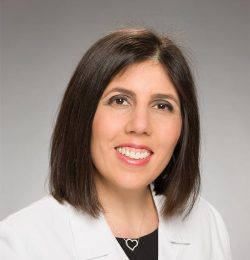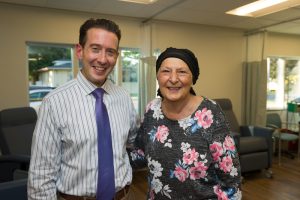
Early Signs of Inflammatory Breast Cancer
Regional Cancer Care Associates (RCCA) provides comprehensive treatment of cancer and blood disorders to patients throughout New Jersey, Connecticut, Maryland, and the Washington, DC, area.
HIPAA Alert: Potential Data Breach Learn More
Questions on Oncology, Hematology and/or Infusion Clinical Services due to COVID-19 Crisis – CALL 833-698-1623
Important Information for Our Patients Regarding the Coronavirus.
RCCA Providing Area Cancer Patients with Access to Care During Coronavirus Outbreak
RCCA Offering Patients Virtual Visits During Coronavirus Pandemic
People newly diagnosed with cancer have more options — and thus more hope — than ever before, thanks to a rapidly expanding array of drug therapies, surgical techniques and radiation interventions. But before consulting with a cancer specialist to decide which treatment strategy is best for them, patients must make a more fundamental decision: where to receive care.
Two medical oncologists with Regional Cancer Care Associates LLC (RCCA), one of the nation’s largest networks of cancer specialists, recently discussed how they counsel patients and families who are weighing this important question. They identified five key factors to consider.


Dr. Levenbach said, “A decade or more ago, access to clinical trials was one of the key differentiating factors between community-based care and academic centers in large cities. That distinction no longer holds true, and the ability to participate in a clinical trial in a community center both benefits patients and increases the breadth and pace of research.”
She added, “Whether it’s a matter of access to trials, or to the latest diagnostics or therapy, I truly believe that physicians who treat people with cancer want those people to receive the best possible care and won’t hesitate to refer a patient elsewhere if there is a unique situation or a specific therapy available at another center that would be beneficial. At the same time, I’m proud that the breadth of expertise across various solid tumors and blood-based malignancies that we possess at RCCA, as well as our ability to provide cutting-edge diagnostics, the latest therapies and access to trials, allows us to provide personalized, compassionate, and outstanding care to our patients right here in the community.”
Drs. Bernstein and Levenbach are among the 90+ cancer specialists who treat patients at more than 20 RCCA care centers located throughout New Jersey, Connecticut, Maryland, and the Washington, DC, area. RCCA oncologists and hematologists see more than 23,000 new patients each year and provide care to more than 225,000 established patients, collaborating closely with their patients’ other physicians. They offer patients the latest in cutting-edge treatments, including immunotherapies and targeted therapy, as well as access to a wide range of clinical trials. In addition to serving patients who have solid tumors, blood-based cancers, and benign blood disorders such as anemia, RCCA care centers also provide infusion services to people with a number of non-oncologic conditions—including multiple sclerosis, Crohn’s disease, asthma, iron-deficiency anemia, and rheumatoid arthritis—who take intravenously-administered medications.
To learn more about RCCA, call 1-844-346-7222 or visit RCCA.com.
For more information or to schedule an appointment,
call 844-346-7222. You can also schedule an appointment by calling the RCCA location nearest you.

Regional Cancer Care Associates (RCCA) provides comprehensive treatment of cancer and blood disorders to patients throughout New Jersey, Connecticut, Maryland, and the Washington, DC, area.

When people think of breast cancer, they generally think of it affecting women. However, in rare circumstances, breast cancer can affect men, most commonly in

First diagnosed with breast cancer in 1992, she has persevered in her battle against the disease for more than 30 years.

Regional Cancer Care Associates is one of fewer than 200 medical practices in the country selected to participate in the Oncology Care Model (OCM); a recent Medicare initiative aimed at improving care coordination and access to and quality of care for Medicare beneficiaries undergoing chemotherapy treatment.